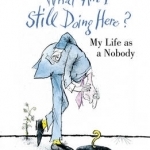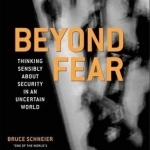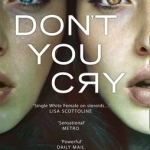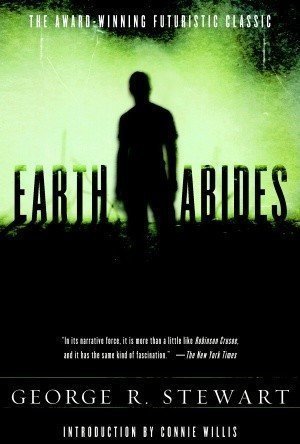Kourtney Becraft (1 KP) rated Princess of souls in Books
Dec 8, 2022
Author: Alexandra Christo
Genre: Fantasy
Number of Pages: 352
Published: October 11th 2022
Main Characters: Selestra and Nox
I loved the fantasy novel Princess of Souls by Alexandra Christo. It was a great read. I decided to read it because it sounded intresting. I also chose to read this novel because I love retellings. I really love the cover too it's what caught my attention and pulled me in. The book starts off slow but slowly starts to get intresting a couple chapters in. Three important characters in this book are the heir Selestra Somniatis, Seryth king of the Six Isles, sand Officer Nox Laederic of Thánatos regiment. Officer Nox Laederic is the king's favorite. Also King Serth had been trying to conquer Southerisle Polemistes is the only one left not bowing down to king after he killed their king. When Officer Nox goes to make the bargain with the king his prediction shows his and Selestra Somniatis death. I hope you enjoy reading this book I sure did.
Now here's some important quotes from the start of the book so I don't spoil the rest of the book for y'all:
1. "I can tell someone when they're going to die. All I need is a lock of hair and their soul."..."That's the job of a Somiatis Witch."
Thoughts on the quote: This job seems interesting but must be hard
2. "At sixteen, I'm still just an heir to my true power, waiting for the day I inherit my family's magic."
Thoughts on this quote: It must be really hard to wait for your true self to kick in.
3. "Somniatis witches are like siphons. We draw in energy and let it pass through us. Energy like death that we call into our veins and let wet our lips. It's what gives us our visions and allows us to take the soulsof the doomed and pour them into the king.
It's cursed magic but it's the only magic left in the six Isles.
My family saw to that."
This quote is important.
4. "Heirs to magic are useless until they reach their eighteenth birthday and are bound to the king by the blood oath, ready to be taught the true essence of magic and trained to take over once the old witch dies. Until then I am Irrelevant."
Thoughts: It must be hard.
5. "Each year only two hundred are allowed to enter into the bargain and risk their souls."

What am I Still Doing Here?: My Life as Me
Book
'Unremittingly glorious. I and the world demand more and we shall thump our tin mugs on the table...

Beyond Fear: Thinking Sensibly About Security in an Uncertain World
Book
Many of us, especially since 9/11, have become personally concerned about issues of security, and...

Effective Birth Preparation: Your Practical Guide to a Better Birth
Book
In response to the success of the award winning "Natal Hypnotherapy CDs" and courses, founder Maggie...

CAD Design 3D - for Interior Design & Floor Plan
Productivity and Games
App
Create realistic floor plans and 3D models in minutes for your next room or home design project....
Louise (64 KP) rated Don't You Cry in Books
Jul 2, 2018
Esther Vaughan has vanished in the middle of the night leaving no note or any reason why, her flatmate Quinn is perplexed, has she been such an awful flatmate that Esther had to up and leave, is Esther really sweet and innocent as she makes out to be? When Quinn goes digging for information she starts to uncover clues and things she never knew about her friend.
Alex Gallo is working in a little cafe/diner/restaurant as a dish washer, when an unfamiliar girl enters the shop, he is instantly intrigued by her and plus she is easy on the eyes. He wants to know why she is there, in the town where nothing really happens. He tries to investigate, however he also has his work and errands he does for the local agoraphobic, Ingrid.
There is also a rumour about a local house across the road from Alex that has been neglected and uninhabited. The reason being,…. it’s haunted by a young girl, Genevieve. Genevieve was a troublesome child who picked on the other children in the neighbourhood.
I really enjoyed Mary Kubica’s writing style, it was definitely a page turner,all the characters were well-developed. It is a slow read but you are still gripped reading it and wanting to know more. I only had some minor problems with the book which are personal opinions, 1. Quinn annoyed me a bit as she is so self-centred. 2. when the plot was beginning to unravel I got a little bit confused with what was happening. Apart from that I really enjoyed it and will be definitely looking into her other books that she has published which are ‘Pretty Baby’ and ‘The good girl’
I definitely recommend this book for anyone who enjoys a suspenseful thriller/mystery.
Overall I rated this 4 out of 5 stars
*I received a copy of this book from Netgalley and the publisher in exchange for an honest review**

AALYYA : Dating, Relationship & Self-Help Magazine
Magazines & Newspapers and Lifestyle
App
AALYYA Magazine focuses on Dating advice, Relationships, and Personal Development for Women....

Bhagavad Gita Discourses
Podcast
The Song Celestial unfolds a dialogue of the advice given by an avatar or God incarnate. The...
Lilyn G - Sci-Fi & Scary (91 KP) rated Earth Abides in Books
Jun 2, 2018
I think this book had to have made some waves when people first started reading in. Published in 1949 and it features an interracial union and espouses a life better without God in it? Yowzers.
I frequently disliked the main character. Isherwood Williams is the type of man that – while I might admire his mind – I would frequently want to thump. He’s full of himself. He’s so cynical about the ‘simplicity’ of the people around him. And, of course, he’s completely human, and there’s the rub. We look for a ‘hero’ in these types of books. Ish is no hero. He’s someone who had the ‘luck’ to survive the end of the world, and now he’s got to live in it. But the world changes – doesn’t it always? And Ish isn’t a King of old. He’s just the head of his Tribe.
Earth Abides feels timeless. I have read many post-apocalyptic books, and they’ve grown tiresome. I approached this book with some caution, because I was afraid of more of the same drivel that is wonderful the first few times you read it, and then swiftly approaches “Been there done that” with disturbing ease. I didn’t want to dislike this book because I was bone-weary of the sub-genre. Thankfully, that wasn’t the case. Because, for all the post-apocalyptic books I’ve read, I don’t think that I’ve ever read a novel like Earth Abides. It also feels the most real. This is how the world goes on; earth abides while humanity fumbles along.
I won’t deny that the main reason I’m making the connection between the two is because I just recently read it, but I could not help but think of McCammon’s Boy’s Life when I finished Earth Abides. I am not someone who self-describes as liking ‘literary fiction’. I’m happy with my genre jollies, thankyouverymuch. I’ll admit to even wrinkling my nose at the idea of reading ‘literature’. However, I think both Earth Abides and Boy’s Life are perfect examples of books that show the appeal of that type of book. They’re not 600 pages long and packed with five dollar words, yet they don’t fit into any particular genre, and they make you think far more than they entertain you.
Here are a few of my favorite quotes:
“If there is a God who made us and we did wrong before His eyes—as George says—at least we did wrong only because we were as God made us, and I do not think that He should set traps. Oh, you should know better than George! Let us not bring all that back into the world again—the angry God, the mean God—the one who does not tell us the rules of the game, and then strikes us when we break them. Let us not bring Him back.”
“Man has been growing more stupid for several thousand years; I myself shall waste no tears at his demise.”
“During ten thousand years his numbers have been on the upgrade in spite of wars, pestilences, and famines. This increase in population has become more and more rapid. Biologically, man has for too long a time been rolling an uninterrupted run of sevens.”
Earth Abides really does deserve it’s spot on the “Must Read” list folks. Its hard to talk about but easy to read. You’ll need some quiet to be able to really appreciate it. Take as long as you need to take with it. I actually walked away from it for a week or so because I have an attention span the length of a gnat, but was drawn back to it, and able to pick up right where I left off.
<i>I received this book for free through Goodreads First Reads. </i>
There is often a preconception that self-published books are not as good as those printed by world famous publishers. Yet, given a chance, there are a few that surprise you. Unfortunately, there are many issues with Laura Foster’s debut novel <i>Crimson</i>. The actual concept has promise of appealing to a range of readers due to falling into a variety of genres: fantasy, science fiction, young adult and paranormal/horror. Where the novel suffers is within the writing style and obvious lack of proof reading.
The storyline concentrates on a homeless young girl whose frightening nightmares have led her to believe she is in grave danger. Dawn Pearson, who the reader is led to believe is only twelve or thirteen years of age, is determined to get as far away from the creature in her dreams as possible. With the help of Mike, a friend she makes on the street, she narrowly escapes being captured by the red-eyed, irascible monster she has named Crimson.
While the pair flee, Dawn and Mike become aware of another terrifying beast, although neither understand why Dawn is being hunted. It soon manifests that Dawn harbours an ethereal power, suggesting that she is far from the human she believed herself to be. As the thrill of the chase heightens, readers are left with questions: who is Dawn? Who is the Crimson? Which characters can be trusted?
It is not clear what the target age group is, however the youthful ages of Dawn and Mike make it suitable for a young adult audience as well as adult readers in general. Dawn and Mike’s relationship, although sudden, becomes a key aspect of the story. For once a friendship between a male and female has no romantic connotations attached, thus not detracting from the surreal circumstances of the plot. Both Dawn and Mike show admiral traits of selflessness – something that ostracizes them from the remainder of ignoble characters.
Sadly, the dramatic climax spirals into confusion. Ever changing plot directions make it unclear who the heroes are, and perplexing scene descriptions make it difficult to picture what the author had in mind. This was a more prominent issue toward the conclusion of the book, resulting in an unsatisfying ending.
One of the major problems with the writing is the constant switching of points of view. Although written in third person, a narrative still speaks from one character’s perspective. This can change from character to character, but usually separated into different chapters. In <i>Crimson</i>, however, Foster alters the viewpoint from paragraph to paragraph. This occasionally makes the text difficult to follow.
As with any lengthy body of text, printing errors can occur – nobody is perfect. On the other hand, the amount of typos in <i>Crimson</i> makes it hard to believe that it had ever been proofread in the first place. Some mistakes are clearly typing errors that are (probably) not the author’s fault, however the repeated misuse of words such as seized/ceased and wondered/wandered are not easy to forgive.
Overall, the premise was there, the writing not so much. It is understood that Laura Foster is currently working on a sequel to <i>Crimson</i>, but its success rests on how well this first book is received. If people can tolerate the errors pinpointed above, then the author has nothing to worry about, yet as it stands, it does not look promising.


